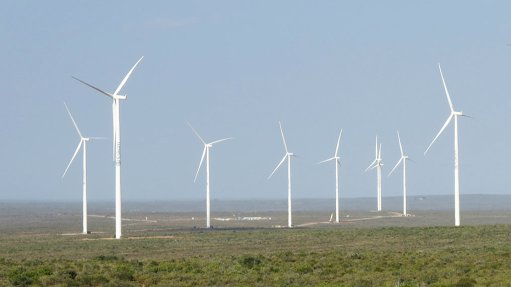Economics of corruption
If there is a single topic that economists tend to avoid researching, it is corruption, which tends to be assumed to reside in the realms of political science and sociology.
At a time when another ‘C’ (Covid-19) is wreaking havoc on an unprecedented scale, corruption seems to be obscured from view. But the destructive and repressive nature of corruption should never be underestimated. In a cold and cruel twist, the two Cs have united in their destruction of the South African economy and the country’s psyche.
As I have stated regularly, South Africans seem to have become numb, comfortable numb, to the word ‘corruption’. The word ‘corruption’ is used with such regularity that it has been deprived of its impact. Even its collective form – ‘State capture’ – has lost its impact. Is the word ‘corruption’ even correctly understood? If you were asked, would you be able to offer a credible definition for ‘corruption’? It is important that we have a correct understanding of ‘corruption’ before considering the economics of corruption.
According to one definition, the economics of corruption is “the misuse of public power for private benefit and its economic impact on society”. Again, there might well be a tendency to read the definition without considering what the terms ‘public power’, ‘private benefit’, ‘economic impact’ and ‘society’ mean.
‘Public power’ is defined by www.uslegal.com as: “The power vested in a person as an agent or instrument of the State in performing the legislative, judicial and executive functions of the State. It also refers to the not-for-profit utilities that are owned and operated by a municipality, State, or the federal government.”
‘Private benefit’ is defined by www.economicsonline.co.uk as “the benefit derived by an individual or firm directly involved in a transaction as either buyer or seller; the private benefit to a consumer can be expressed at utility, and the private benefit to a firm is profit”.
‘Economic impact’ is defined by www.businessdictionary.com as “a macroeconomic effect on commerce, employment or incomes produced by a decision, event or policy”. To clarify, ‘macroeconomics’ is defined by www.collinsdictionary.com as “the branch of economics that is concerned with the major, general features of a country’s economy”.
‘Society’ is defined by www.dictionary.cambridge.org as “a large group of people who live together in an organised way, making decisions about how to do things and sharing the work that needs to be done”.
According to the publications How Corruption Affects Emerging Economies and The Institutional Economics of Corruption and Reform: Theory, Evidence, and Policy: “Economies that are afflicted by a high level of corruption are not capable of prospering as fully as those with a low level of corruption. Also, economies that are corrupted are not able to function properly, since the natural laws of the economy cannot function freely. As a consequence, corruption, for instance, leads to an inefficient allocation of resources, poor education and healthcare or the presence of a shadow economy, a kind of economy that includes illegal activities as well as unreported income from the production of legal goods and services for which taxes should be paid, but are not.”
The primary problem with the measurement, or rather the attempted measurement, is that, to do so objectively, the number of criminal indictments needs to be aggregated. In instances where corruption goes unpunished, it is not counted. As a consequence, corruption tends to be considered subjectively.
If you consult Google for ‘Corruption South Africa’, the top result is www.theconversation.com: “Corruption in South Africa: Echoes of Leaders who Plundered their Countries”, dated January 23. Do not be fooled, as the National Education, Health and Allied Workers’ Union so pertinently reminds in the headline of an article published on www.politicsweb.co.za on August 4: ‘Corruption is not a victimless crime’.
In the words of American novelist William Gaddis: “Power doesn’t corrupt people. People corrupt power.”
Article Enquiry
Email Article
Save Article
Feedback
To advertise email advertising@creamermedia.co.za or click here
Press Office
Announcements
What's On
Subscribe to improve your user experience...
Option 1 (equivalent of R125 a month):
Receive a weekly copy of Creamer Media's Engineering News & Mining Weekly magazine
(print copy for those in South Africa and e-magazine for those outside of South Africa)
Receive daily email newsletters
Access to full search results
Access archive of magazine back copies
Access to Projects in Progress
Access to ONE Research Report of your choice in PDF format
Option 2 (equivalent of R375 a month):
All benefits from Option 1
PLUS
Access to Creamer Media's Research Channel Africa for ALL Research Reports, in PDF format, on various industrial and mining sectors
including Electricity; Water; Energy Transition; Hydrogen; Roads, Rail and Ports; Coal; Gold; Platinum; Battery Metals; etc.
Already a subscriber?
Forgotten your password?
Receive weekly copy of Creamer Media's Engineering News & Mining Weekly magazine (print copy for those in South Africa and e-magazine for those outside of South Africa)
➕
Recieve daily email newsletters
➕
Access to full search results
➕
Access archive of magazine back copies
➕
Access to Projects in Progress
➕
Access to ONE Research Report of your choice in PDF format
RESEARCH CHANNEL AFRICA
R4500 (equivalent of R375 a month)
SUBSCRIBEAll benefits from Option 1
➕
Access to Creamer Media's Research Channel Africa for ALL Research Reports on various industrial and mining sectors, in PDF format, including on:
Electricity
➕
Water
➕
Energy Transition
➕
Hydrogen
➕
Roads, Rail and Ports
➕
Coal
➕
Gold
➕
Platinum
➕
Battery Metals
➕
etc.
Receive all benefits from Option 1 or Option 2 delivered to numerous people at your company
➕
Multiple User names and Passwords for simultaneous log-ins
➕
Intranet integration access to all in your organisation

















